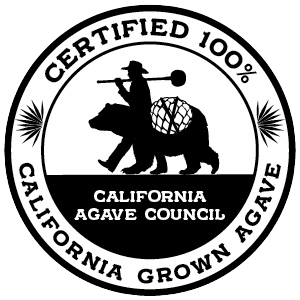Commission Bill FAQ
What is a Commission? A commission is a legal organization designed to support growers and processors in California. It allows a sustainable pooling of resources for research, education, promotion, and marketing without violating anti-competition laws. Since the 1960s, Numerous commissions have been formed to support various commodity groups. Examples include:
And many more.
How is the Agave Commission established? What is the voting threshold?
The passage of AB 2606 provides industry members with the right to form the Commission, not the mandate itself.
Food and Agricultural Code Section 79992 states: “The commission shall not be established, and this chapter shall not be implemented, except as necessary to conduct an implementation referendum vote, until the secretary finds all of the following in a referendum vote conducted by the secretary…”
The Agave Council can request the CDFA to start a referendum when it’s the right time to begin.[1] CDFA will compile a list of eligible voters and distribute ballots, which must be returned within 60 days.[2]
What is the vote threshold to create the Commission?
The law requires 40% of eligible growers and processors to vote. Two conditions must be met:
(1) At least 65% of growers and processors (representing the majority of agave production or processing) must vote to support the creation of the Commission.
(2) Those that supported the creation of the Commission must represent the majority of agave produced or processed in the State. [3]
These two conditions are required to balance the needs of the agave industry and to ensure every grower and processor has an equal vote.
Is this the vote requirement for all other votes taken by the Commission?
No, this is only the vote threshold for creating the Commission. All other votes of the Commission are by majority vote, unless specified.
Who is eligible to vote in the referendum? Growers with 2 acres or more of agave and licensed processors that process 3 tons or more of agave annually.[4]
What if I grow less than two acres of agave or process less than 3 tons? You are not voting members, are not subject to the assessment, and do not have to report information to the Commission.[5]
Who runs the Commission? The Commission is run by a Board of Directors elected by the growers and processors, who all have an equal vote.[6]
Who is on the Commission's Board of Directors? The board consists of 6 growers, 2 processors, and 1 public member voted on by the members, serving 3-year terms. The public member is appointed by the CDFA Secretary. The grower and processor board members must be growers/processors with a financial interest in agave.[7] All Board meetings are publicly noticed, and any person can participate.
How is the initial Board selected and how do Board members change?
When the Commission is established, CDFA will contact all growers and processors to nominate and elect growers and processors to serve on the commission board of directors.
After the first election, the Board of Directors in an open meeting will determine nomination and election procedures. These procedures must be agreed upon by the Secretary of CDFA.[8]
What activities can the Commission undertake? The Commission can manage administrative functions, conduct research, distribute information, establish assessment rates, and promote agave products. Its work adapts to the needs of the industry.[9]
What is an assessment, and who pays it? An assessment is a fee for the Commission's operational costs. The maximum assessment is $50,000 per year, with no more than $1,000 for those cultivating or processing between 2-10 acres or 3-10 tons.[10] This is a preliminary assessment rate that could be adjusted.
*This is being discussed to change assessments from acreage to tonnage assessed upon processing*
How does the Commission implement changes to procedures, assessment rates, etc.? The law is meant to provide a basic framework for what the Commission can and cannot do and how it operates. Most of the specifics on how the Commission operates can be changed through a vote of the board of directors in a public meeting. But some of the Commission’s requirements are in law. Changing these requires legislation, which can be initiated by the Commission, with the consensus of the agave industry. These two methods allow the Commission to adapt to the needs of the industry.
Why would the Commission request information? The Commission may request data such as acreage, varietals, and production information to identify trends, support marketing efforts, and address industry research needs. information of any individual or entity is confidential.
Can the Commission tell growers and processors how to run their business? No. The Commission is not a regulatory body and can’t impose rules on growers or processors. The Commission cannot tell a grower how to grow or what to grow.
Can the Commission be terminated? Yes, five years after establishment the CDFA will hold a public hearing to review the Commission. A majority vote of eligible growers and processors can decide to terminate it.[11]
[1] FAC §79961
[2] FAC §79963
[3] FAC §79962
[4] FAC §79927 and FAC §79931
[5] Et. al.
[6] FAC § 79936
[7] Et. al.
[8] FAC §79967
[9] FAC §79956
[10] FAC §79971
[11] FAC §79991
